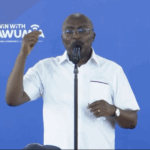“Jewels shine brighter in impoverished conditions” is a statement that captures the resilience and strength of physicians in Ghana. Charged with the demanding responsibility of delivering meaningful patient care amidst adversity, these professionals strive to use their skills to help as many people as possible, without compromising their own financial well-being. Yet, in a low-resource setting, this balance is difficult to achieve and often feels insurmountable.
The authors recall moments from medical school when students could not fully grasp the daily struggles patients face, nor appreciate the silent burdens carried by their senior colleagues, the frustrations, the limitations, and the quiet longing for better systems that could truly enhance their impact in our setting.
Then life came full circle, and they found themselves in the same shoes, struggling with the very inequities they had once observed from a distance. Working at Korle Bu Teaching Hospital as a medical officer, the honour of serving at such a revered institution was overshadowed by a harsh reality: the salary alone was not enough to sustain a decent livelihood, let alone reflect the dignity of the role.
Like many others, they were forced to take on additional work at other private hospitals, juggling long hours simply to meet the expectations of society.
But it was not just the financial strain that weighed on them. It was the emotional toll, the stories behind the eyes of their patients. They looked at us as gods, all-knowing, all-powerful, the final stop in their journey of pain and uncertainty. And yet, too often, we felt powerless. Referring patients to other facilities, only to have them face the infamous “no bed syndrome,” or watch them suffer because we lacked the life-saving devices needed in emergencies, it was heart-wrenching. These were not just statistics. These were human lives. Families. Dreams abruptly ended.
We went home many nights heavy with sorrow, haunted by what could have been done, what should have been possible, if only we had the tools. But when things go wrong, it is often the doctors who are remembered, not the circumstances that failed us all.
When we transitioned to further our education abroad, in a country where healthcare infrastructure is far more robust, the contrast was jarring. Patients there are offered an array of confirmatory tests and options.
Clinicians operate in systems that empower rather than limit them. And for the first time, we saw what was possible when care is supported by resources. This journey has changed us, not just as doctors, but as people. It has deepened our empathy, sharpened our resolve, and stirred a quiet determination to be part of a change that our healthcare system so desperately needs.
Today, we pause to reflect on the incredible journey of Ghana’s healthcare system, a story shaped by resilience, innovation, and the relentless dedication of those who serve within it. With limited funding and resources, our health professionals, often unsung heroes, have gone above and beyond to care for over 33 million people. From using plastic bottles for CPAP machines to improvising with kerosene lanterns during deliveries, they have shown what true innovation looks like in the face of adversity.
At the heart of this transformation lies a shift toward sustainable, locally driven solutions. Ghana’s move away from the old “cash and carry” system and toward the National Health Insurance Scheme (NHIS) marked a turning point in reducing financial barriers to care.
Though challenges remain, especially in enrolling the most vulnerable, this system laid a foundation for broader access to healthcare. Decentralization has further empowered local health teams to prioritize, design, and implement interventions tailored to their communities.
The Community-based Health Planning and Services (CHPS) initiative has brought healthcare directly to the doorsteps of rural Ghanaians, ensuring no one is left behind. Walk-in access to care, without the burden of long wait times, has made early detection and treatment more accessible than in many higher-income countries.
The introduction of Health Technology Assessment (HTA) in Ghana has become a beacon of evidence-based policymaking in Africa. From childhood cancers to COVID-19, HTA has supported smarter investment in high-impact health interventions, helping leaders make better use of scarce resources.
Still, disparities persist. Uneven resource distribution, limited infrastructure, and the digital divide threaten progress. To close these gaps, investment in local capacity, digital health tools, and solar-powered CHPS compounds must be accelerated. Ghana can also learn from global best practices, drawing inspiration from nations like the UK and the Netherlands, where tax-based or compulsory insurance systems have made healthcare affordable and accessible for the majority.
But above all, we must recognize the human spirit behind this evolution. From physicians to nurses to community health workers, these are the hidden jewels of our health system. Their sacrifices and ingenuity sustain us, and their stories light the path forward.
In honouring them, we honour our future and commit to building a healthcare system worthy of the people it serves.
About the Authors:

Dr. Denise Eke Chukwu is a dedicated clinician with over six years of impactful service in both the public and private healthcare sectors in Ghana. She has transformed lives through her work in remote, underserved communities. Currently pursuing a Master of Public Health at the Johns Hopkins Bloomberg School of Public Health, she is specializing in Health Leadership and Management. With additional certifications in Humanitarian Health, Health Finance and Management, and Leadership in Public Health, Dr. Eke Chukwu continues to drive systemic change, championing equitable access to healthcare across the nation.
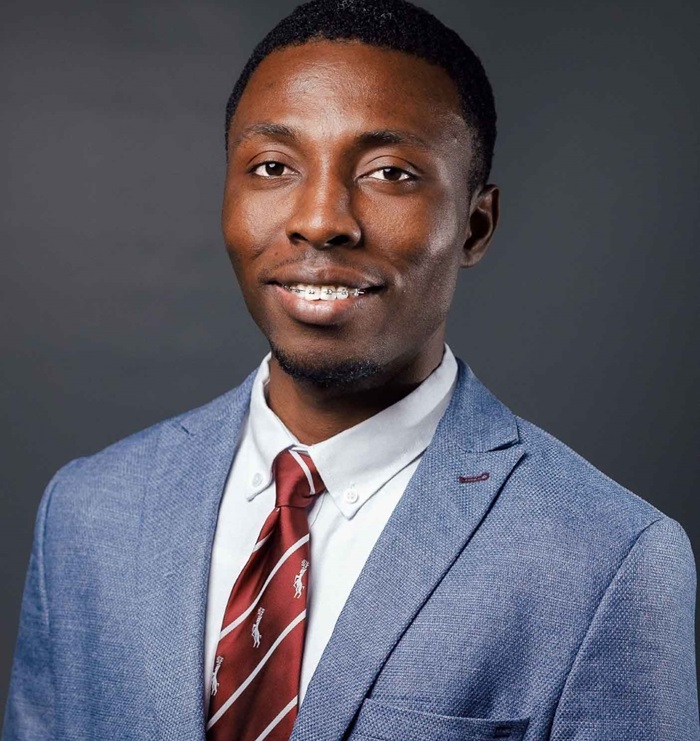
Dr. Simon Egyin is a general physician from Ghana and a Master of Public Health student at the Johns Hopkins Bloomberg School of Public Health. With a strong passion for genetics and cancer research, Dr. Egyin has also explored the field of Health Security. He is deeply committed to serving underserved communities and improving healthcare systems worldwide.
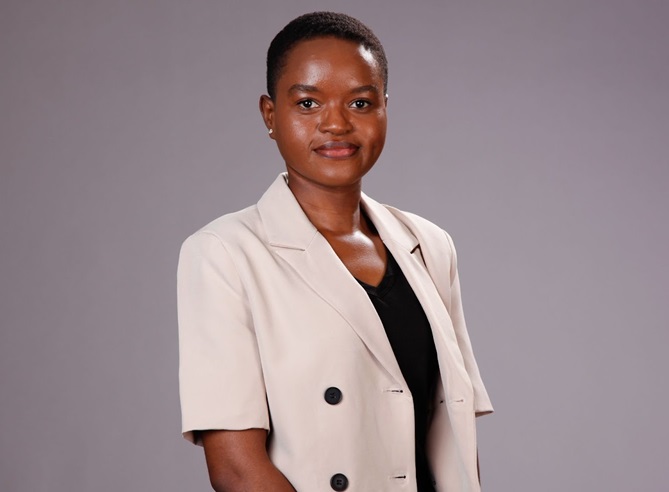
Nicemode Charles is from Morogoro, Tanzania, and is currently pursuing a Master of Public Health at the Johns Hopkins Bloomberg School of Public Health. She holds a Bachelor of Science in Biochemistry and Economics from Agnes Scott College. Nicemode is passionate about improving access to innovative therapies for patients in underserved communities by using multidisciplinary, evidence-based approaches that incorporate the lived experiences of patients. In her free time, she enjoys cooking, dancing, and exploring new cities.
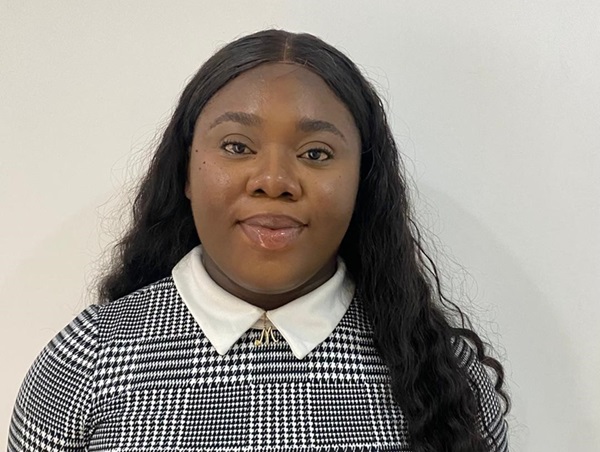
Dr. Yvonne Appau Mensah is a General Practitioner and a current Master of Public Health student at the Johns Hopkins Bloomberg School of Public Health. With extensive clinical experience in both public and private healthcare settings in Ghana, she has developed a deep understanding of the challenges posed by infectious diseases in resource-limited environments. Her academic pursuits are driven by a strong commitment to advancing evidence-based strategies for disease prevention, outbreak response, and health equity. Dr. Mensah is particularly interested in leveraging epidemiological research and data-driven interventions to address global health challenges, especially those affecting underserved populations.
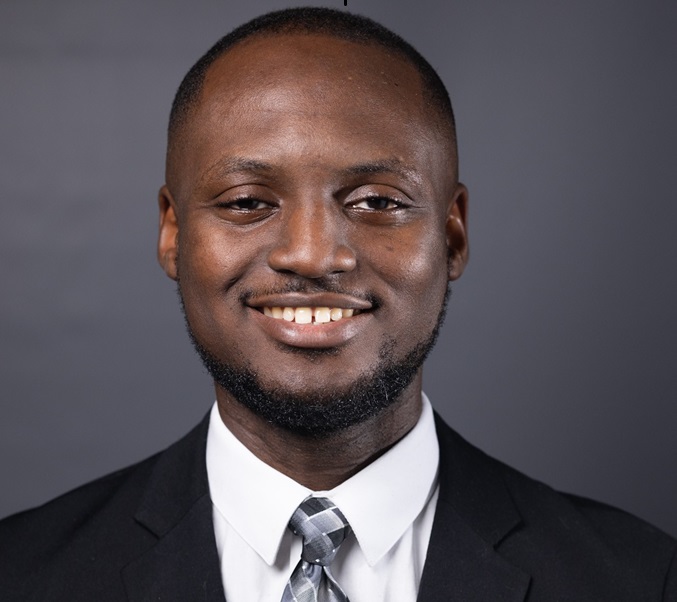
Dr. Albert Ekow Orhin is a trained physician from Ghana who is currently pursuing a master degree in Molecular Microbiology and Immunology at the Johns Hopkins Bloomberg School of Public Health. He has spent most of his clinical career in the Medical Intensive Care Unit, where he led and contributed to quality improvement initiatives aimed at reducing preventable harm, enhancing sepsis care, and strengthening care coordination. His career goal is to become a physician-scientist specializing in infectious diseases, combining clinical care with research to drive innovations in patient outcomes and health systems improvement, particularly for underserved populations.
DISCLAIMER: The Views, Comments, Opinions, Contributions and Statements made by Readers and Contributors on this platform do not necessarily represent the views or policy of Multimedia Group Limited.
DISCLAIMER: The Views, Comments, Opinions, Contributions and Statements made by Readers and Contributors on this platform do not necessarily represent the views or policy of Multimedia Group Limited.
- President Commissions 36.5 Million Dollars Hospital In The Tain District
- You Will Not Go Free For Killing An Hard Working MP – Akufo-Addo To MP’s Killer
- I Will Lead You To Victory – Ato Forson Assures NDC Supporters
Visit Our Social Media for More



